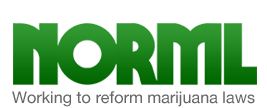Washington, DC: In the first in what are anticipated to be multiple Congressional hearings to address the federal prohibition and criminalization of cannabis, the House Financial Services Committee has scheduled to convene a markup on The Safe Banking Act, HR 1595.
Thousands of state-licensed and regulated businesses lack access to the banking industry and are unable to accept credit cards, deposit revenues, or write checks to meet payroll or pay taxes because federal law discourages financial institutions from engaging in such partnerships. This ongoing federal prohibition forces this newly emerging billion-dollar industry operates largely on a cash-only basis — an environment that makes businesses more susceptible to theft and more difficult to audit. It also places the safety and welfare of these business’ customers at risk, as they must carry significant amounts of cash on their persons in order to make legal purchases at retail facilities.
NORML Political Director Justin Strekal said:
“This situation is untenable. No industry can operate safely, transparently, or effectively without access to banks or other financial institutions. In order to best support the states that have had the good judgment to license and regulate businesses to produce, manufacture, or distribute cannabis, it is critical that Congress address the lack of basic banking services and amend federal law accordingly.
“The banking issue is just one aspect of the failed policy of federal cannabis criminalization. In order to truly bring the cannabis industry out of the shadows, actions need to be taken by Congress to amend this, and many others, outdated and discriminatory practices.
“This will certainly not be the last hearing of this Congress to discuss cannabis prohibition and we expect a full hearing on prohibition to be scheduled in the months to come.”
Congressman Ed Perlmutter said, “For six years, Congress has failed to act on the issue of cannabis banking, putting thousands of employees, businesses and communities at risk. However, the issue is finally receiving the attention it deserves with the first-ever congressional hearing and now a scheduled committee vote. With 97.7% of the U.S. population living in a state where voters have legalized some form of adult recreational, medical or limited-medical use of cannabis, congressional inaction is no longer an option. And with broad, bipartisan support in the House, I look forward to the SAFE Banking Act continuing to move forward in the Financial Services Committee and on the floor of the House.”
According to the most recent FBI Uniform Crime Report, police made 659,700 arrests for cannabis-related violations in 2017. That total is more than 21 percent higher than the total number of persons arrests for the commission of violent crimes (518,617) in 2017. Of those arrested for cannabis crimes, just under 91 percent (599,000) were arrested for cannabis possession offenses, a slight increase over last year’s annual totals. Total cannabis arrests in 2017 increased for the second straight year, after having fallen for nearly a decade.
Thirty-three states, Washington, D.C. and the U.S. territories of Guam and Puerto Rico have enacted legislation specific to the physician-authorized use of cannabis. Moreover, an estimated 73 million Americans now reside in the ten states where anyone over the age of 21 may possess cannabis legally. An additional fifteen states have passed laws specific to the possession of cannabidiol (CBD) oil for therapeutic purposes.
Sixty-eight percent of registered voters “support the legalization of cannabis,” according to 2018 national polling data compiled by the Center for American Progress. The percentage is the highest level of support for legalization ever reported in a nationwide, scientific poll.
Majorities of Democrats (77 percent), Independents (62 percent), and Republicans (57 percent) back legalization. The results of a 2017 nationwide Gallup poll similarly found majority support among all three groups.
To date, these statewide regulatory programs are operating largely as voters and politicians intended. The enactment of these policies have not negatively impacted workplace safety, crime rates, traffic safety, or youth use patterns. They have stimulated economic development and created hundreds of millions of dollars in new tax revenue.
Specifically, a 2019 report estimates that over 211,000 Americans are now working full-time in the cannabis industry. Tax revenues from states like Colorado, Oregon, and Washington now exceed initial projections. Further, numerous studies have identified an association between cannabis access and lower rates of opioid use, abuse, hospitalizations, and mortality.
NORML’s mission is to move public opinion sufficiently to legalize the responsible use of cannabis by adults, and to serve as an advocate for consumers to assure they have access to high-quality cannabis that is safe, convenient, and affordable.
Find out more at www.norml.org and read our factsheets on the most common misconceptions and myths regarding reform efforts around the country at www.norml.org/marijuana/fact-sheets
| NORML and the NORML Foundation 1100 H Street NW, Suite 830, Washington DC, 20005 (202) 483-5500 • norml@norml.org |









